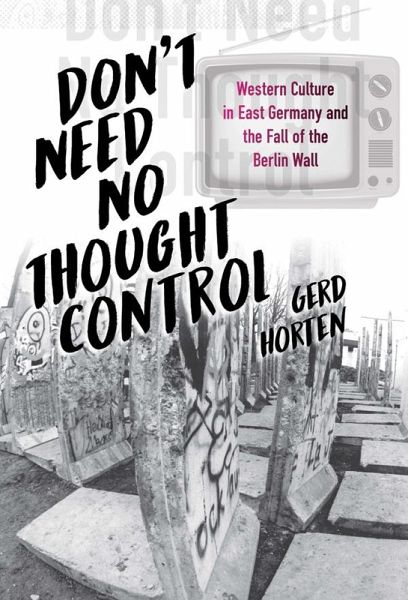
Don't Need No Thought Control (eBook, ePUB)
Western Culture in East Germany and the Fall of the Berlin Wall
Versandkostenfrei!
Sofort per Download lieferbar
17,95 €
inkl. MwSt.
Weitere Ausgaben:

PAYBACK Punkte
9 °P sammeln!
The fall of the Berlin Wall is typically understood as the culmination of political-economic trends that fatally weakened the East German state. Meanwhile, comparatively little attention has been paid to the cultural dimension of these dramatic events, particularly the role played by Western mass media and consumer culture. With a focus on the 1970s and 1980s, Don't Need No Thought Control explores the dynamic interplay of popular unrest, intensifying economic crises, and cultural policies under Erich Honecker. It shows how the widespread influence of (and public demands for) Western cultural...
The fall of the Berlin Wall is typically understood as the culmination of political-economic trends that fatally weakened the East German state. Meanwhile, comparatively little attention has been paid to the cultural dimension of these dramatic events, particularly the role played by Western mass media and consumer culture. With a focus on the 1970s and 1980s, Don't Need No Thought Control explores the dynamic interplay of popular unrest, intensifying economic crises, and cultural policies under Erich Honecker. It shows how the widespread influence of (and public demands for) Western cultural products forced GDR leaders into a series of grudging accommodations that undermined state power to a hitherto underappreciated extent.
Dieser Download kann aus rechtlichen Gründen nur mit Rechnungsadresse in A, D ausgeliefert werden.













